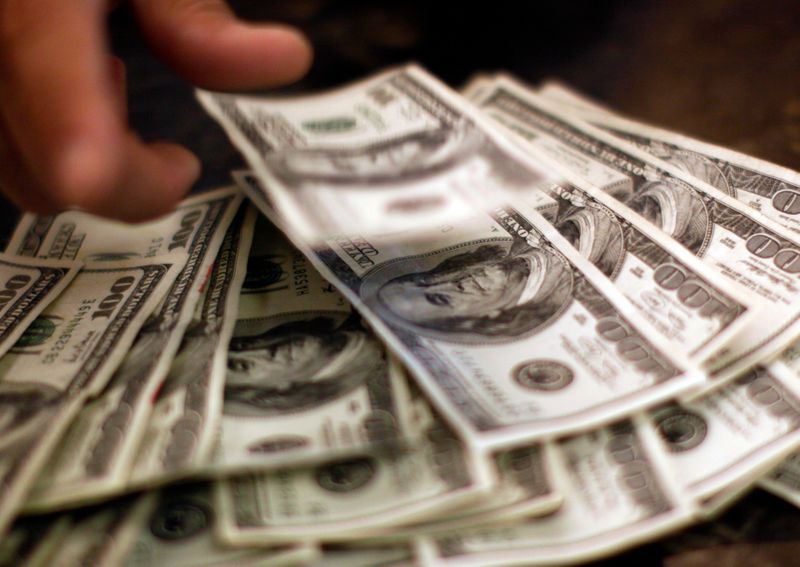By Yasin Ebrahim
Investing.com -- The dollar jumped on Monday, driving back the wave of bearish bets that recently pushed it to one-year lows as some on Wall Street believe bets on Federal Reserve rate cuts and a soft landing is nearing a crossroads.
The U.S. dollar index, which measures the greenback against a trade-weighted basket of six major currencies, rose by 0.54% to 101.8, after falling to its lowest level since April 2022 on Friday.
“The market is pricing a fairly narrow path of a small slowdown but more accommodative policy, and we think that is likely to come to a fork in the road before too long,” Goldman Sachs said in a note.
The dollar’s slump to a one-year low recently was driven by bets that the banking crisis would rein in lending standards and economic growth, forcing the Fed to come to the rescue with rate cuts.
But fears the collapse of Silicon Valley Bank and Signature Bank would spark a systemic banking crisis haven’t materialized, returning the focus to elevated inflation that is likely to keep interest rates higher for longer.
“[W]hile Fed officials were understandably concerned in March, most of the commentary since then has at least noted that the tightening in lending conditions appears mild so far and they continue to view the bank failures as relatively idiosyncratic,” Goldman Sachs added.
Data last week showed that banks cut back borrowing from the Fed’s emerging lending programs to $139.5 billion from $148.7B in the week ended Apr 12, signaling that turmoil in the banking sector has somewhat eased.
Others, however, continue to believe that fears over the impact of tighter credit conditions will weigh heavily on the dollar, and point to a recent small business survey showing signs of cracks in lending activity and recent data showing cooling inflation as reason for the Fed to pause.
“The developments should give the Fed more confidence that it has already delivered sufficient rate hikes and can now pause its hiking cycle,” MUFG said. “In these circumstances, we believe that risks remain titled to the downside for the USD."
